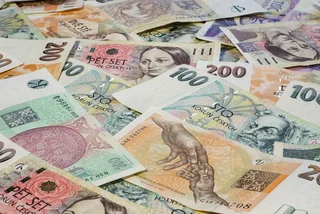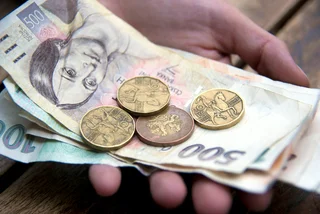The recent news that average inflation last year in Czechia was over 15 percent will come as no surprise to people living in the country, given that prices increased in almost all aspects of life. A new survey published in iDnes has found that the situation is particularly dire for people’s day-to-day living expenses.
"The cost of living has increased for almost nine-tenths of the population of the Czech Republic, most often up to CZK 10,000 per month,” said head of Median agency Přemysl Čech.
According to experts, this situation is so bad that it “cannot even bear comparison” with the Czech mortgage crisis from about 10 years ago. Now, “the standard of living has decreased for practically everyone.” A reported 7 in 10 households had to dip into their savings to make ends meet.
Biting food inflation through 2022
- The cost of granulated sugar has increased from CZK 18 to CZK 36
- A pack of butter has increased from CZK 54 to CZK 68
- A kilogram of Edam cheese has gone from CZK 183 to CZK 215
- In December, the price of poultry rose by 43 percent year on year
- The price of milk rose by over 50 percent in 2022
Source: iDnes
The survey showed that about half of respondents decided to cook and/or heat less, and 43 percent of people said they were saving heavily on food shopping.
Food and energy prices went through the roof
Food is one area of life that has seen a large jump in price – a recent report found that Czechs spent CZK 180 on a restaurant lunch in December 2022 – a near 20 percent increase. Prague has the most expensive average lunches, at over CZK 200.
“Instead of five times a week, people go for lunch three times, they don't order the whole menu, but only the main course and no drinks,” said the president of the Association of Hotels and Restaurants Václav Stárek in iDnes.
Despite the government’s decision last year to introduce price caps on energy, people are paying considerably more for their bills: electricity bills have increased by an estimated 40 percent on average. Data from the Czech Statistical Office shows that in December 2022 natural-gas prices rose 140 percent year on year. The price of water, too, has gone up in 217 of 219 cities in Czechia by about 16 percent on average.
Where people in Czechia will feel inflation the most
On top of surging food and energy inflation, Czechs are also set to pay much higher rental prices. A study found that, in the capital, apartment rental prices rose by about 20 percent year on year. On a nationwide basis, the purchase price of both apartments and homes rose by 23 percent year on year in the second quarter of last year (latest available data).
On a global perspective, however, Czechia does not seem to fare too badly. According to a ranking by price-comparison site Numbeo, Prague ranks 271st place out of 540 of the world's most expensive cities. On a European level, it is ranked 136th most expensive out of 238 cities, Aktualne.cz reports.
Although most of Europe is experiencing hardship – a recent survey published by Euronews found that almost half of Europeans experienced a decline in living standards – one senior economist says that it is wrong to equate Czechs’ struggles with those in other countries.
FEELING PESSIMISTIC
- Just 8 percent of Czechs have confidence that living standards will increase next year
- About half of all Czechs report financial difficulties
- More than a million Czechs live on the brink of poverty
- About one-third of people have recently dipped into their savings
- Three in 10 Czechs struggle to pay their bills
Sources: iDnes, Novinky.cz, Seznam Zprávy
“Compared to Western Europe, we are certainly worse,” said Chief Economist of Creditas Bank Petr Dufek. “Last year, we experienced probably the biggest drop in real wages in history,” he added.
Inflation is likely to persist at rates similar to now until mid-2023, according to experts at the Czech National Bank. With three-quarters of Czechs fearing the effects of inflation on their budgets, the next 12 months are likely to be tough for the majority of Czechs.












 Reading time: 3 minutes
Reading time: 3 minutes 


























